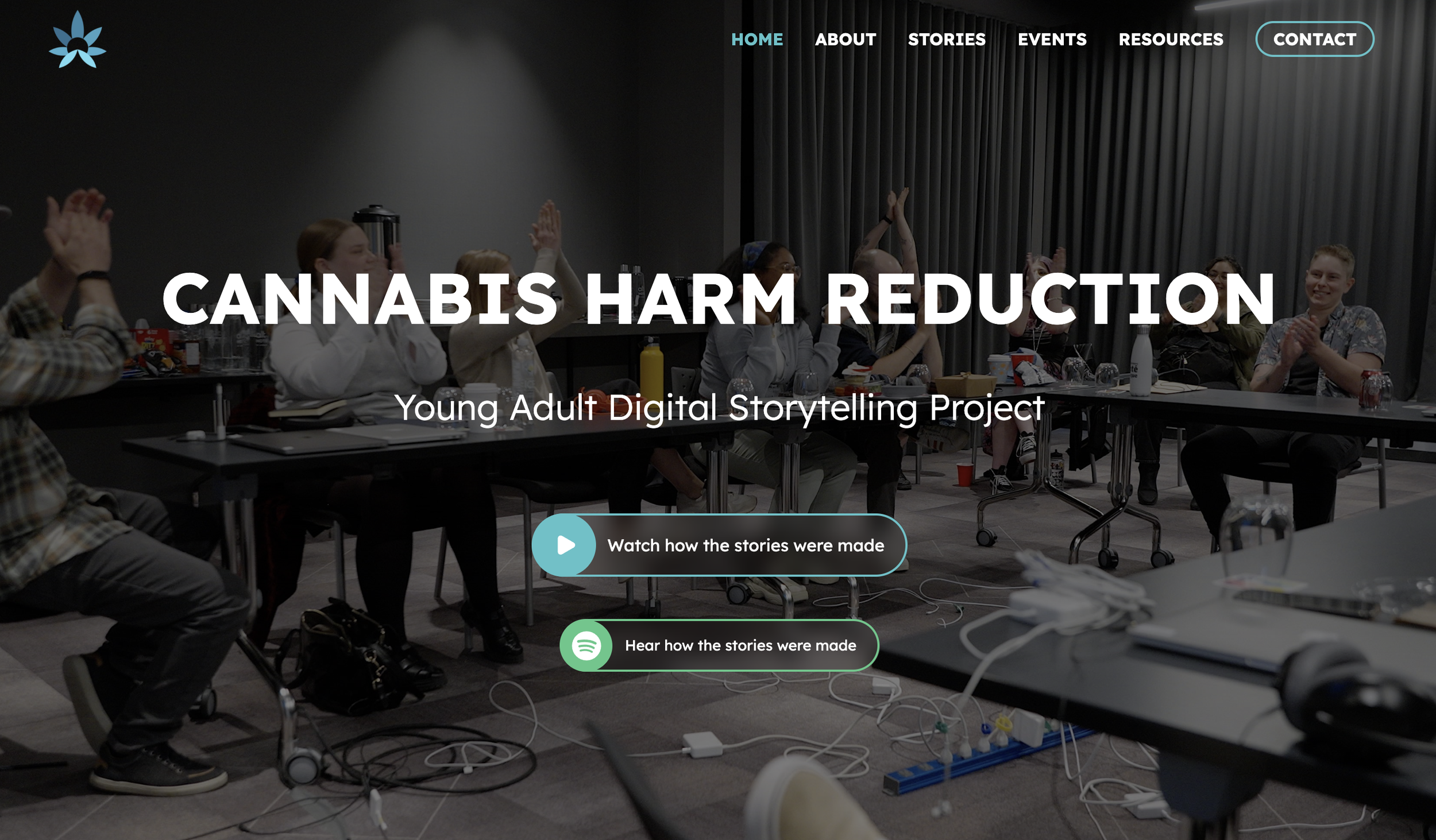Empowering Youth Through Digital Storytelling
In today's rapidly evolving world, the role of storytelling, especially digital storytelling, has emerged as a powerful tool for advocacy, education, and policy change. In this insightful podcast episode, we dive into the transformative potential of digital storytelling with Rebecca Saah, a researcher and digital storytelling facilitator at the University of Calgary.
Rebecca's introduction to digital storytelling began with a workshop on tobacco use, where she first experienced the medium's potential to transform personal crises into meaningful narratives. This experience was pivotal, providing her with a unique lens to view and address the challenges faced by young people, particularly in the context of cannabis harm reduction. Her work emphasizes the importance of creative expression as a means of empowering young individuals to share their experiences and influence policies that affect them.
One of the key themes explored in this episode is the dual role of technical and executive facilitation in digital storytelling projects. Rebecca's journey through various workshops highlights the unexpected challenges that facilitators may face, such as dealing with personal setbacks like a scratched cornea. Yet, these experiences underscore the critical need for adaptability and support within these projects. The episode sheds light on the distinction between technical tasks and executive roles, illustrating how understanding one's strengths can significantly impact the success of storytelling initiatives.
Events like Kitchen Table Nights and Science in the Cinema are also discussed as innovative platforms where digital stories come to life, providing unique opportunities for youth engagement. These events serve as crucial touchpoints for disseminating completed digital stories and fostering a broader dialogue around harm reduction and youth-focused initiatives.
The episode further delves into the nostalgic impact of iconic shows like Degrassi Junior High (you may recognize Rebecca from her role on the show), reflecting on their influence on youth culture and advocacy. This discussion naturally transitions into the pressing issue of defunding harm reduction initiatives in Alberta, highlighting the importance of personal stories in drawing attention to these policy changes. Rebecca emphasizes the critical role of amplifying youth voices, particularly in discussions surrounding cannabis legalization and educational policy
Episode 24 Key Messages
Rebecca’s Focus on Health Inequities 1:29
Rebecca explains her sociological training and how she focuses on health and social services, particularly how inequitable access impacts people using substances. Her work aims to improve care access through a harm-reduction approach.
DST Project on Cannabis Harm Reduction 6:20
Rebecca highlights receiving her first grant for a digital storytelling workshop focusing on cannabis harm reduction for young adults. She emphasizes harm reduction as a strategy to improve health and safety for substance users without requiring abstinence, offering compassionate support to meet individuals where they are.
Youth and Digital Storytelling Competency 14:51
Rebecca discusses how young adults are tech-savvy, navigating digital storytelling by leveraging online image resources. They naturally adapt to crafting visual narratives due to their familiarity with platforms like Instagram and TikTok.
Adapting to Personal Strengths in DST Facilitation 17:16
Rebecca shares her realization that her strengths lie more in conceptualizing projects, grant writing, and producing, rather than hands-on technical work. She notes the importance of different roles, such as technical and executive, in making these projects successful.
The Power of Youth Voices in Policy Discussions 27:18
Rebecca emphasizes the need to involve young people in policy-making, particularly on issues that affect them, such as cannabis legalization and education reforms. Digital storytelling is positioned as a tool to amplify youth voices, ensuring that policies reflect their real experiences and needs.
Organizations like CanChild are mentioned as exemplary models that have embraced participant-driven narratives to reshape curriculums. By starting with the audience's needs, these organizations have demonstrated the value of authentic experiences in informing and enhancing educational outcomes. This approach challenges traditional educational goals and advocates for a more inclusive, audience-centered framework.
Throughout the episode, the power of personal stories as catalysts for educational change is a recurring theme. Rebecca shares her experiences working with organizations initially hesitant to adopt participant-driven narratives, highlighting how these stories have provided invaluable insights into program effectiveness. This narrative-driven approach not only informs but also fosters a deeper understanding of the impact of educational programs, ultimately advocating for a more inclusive approach to decision-making.
In conclusion, this podcast episode is a compelling exploration of the transformative potential of digital storytelling in youth advocacy and education. Rebecca Saah's journey serves as an inspiring example of how personal narratives can be harnessed to navigate academic pressures, influence policy, and empower young voices. The episode invites listeners to reflect on the importance of creative expression and audience-centered approaches in shaping more effective and inclusive educational outcomes. As digital storytelling continues to evolve, its role in amplifying marginalized voices and driving meaningful change becomes increasingly vital.
About our Guest
Rebecca Saah is a public health sociologist and her research interests are in youth drug use, harm reduction approaches to substance use, and drug policy reform. She is known for tobacco and cannabis research with youth, and for her role as a teen actor on the Canadian television series' Degrassi Junior High and Degrassi High.
Website: rebeccasaah.com
Blog: rsaah.ucalgaryblogs.ca
“From child actor to youth advocate”
About Co-Created
Co-Created is a podcast that takes you behind the scenes of digital storytelling. On each episode, host Kristy Wolfe dives into conversations with the storytellers and facilitators who bring digital stories to life.
If this particular conversation resonated with you, tell a friend or a colleague about Co-Created or share one of the digital stories we were talking about. You can find the stories here.
Co-Created is presented by Common Language DST, digital storytelling facilitation training for health and wellness changemakers and is supported by the team at Snack Labs.




